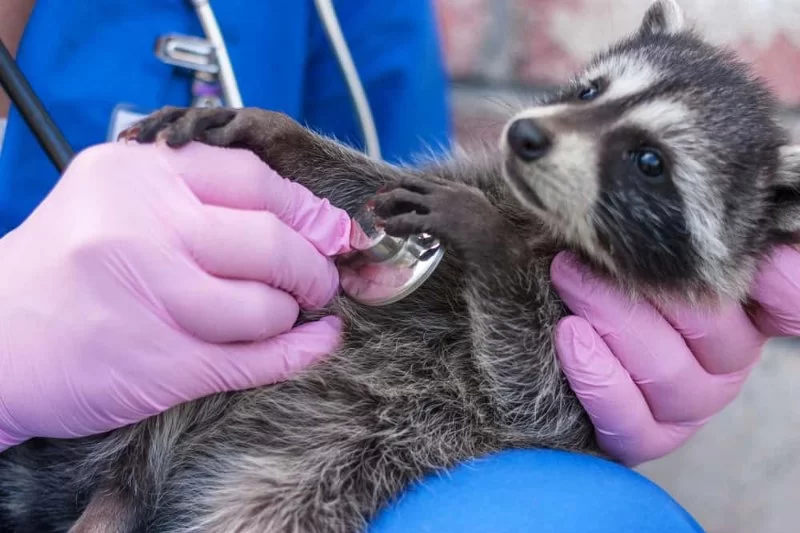How to Become a Zoological Veterinarian
- understanding-the-role-of-a-zoological-veterinarian – Understanding the Role of a Zoological Veterinarian
- educational-pathway-to-become-a-zoo-vet – Educational Pathway to Become a Zoo Vet
- gaining-hands-on-experience-with-exotic-animals – Gaining Hands-On Experience with Exotic Animals
- case-study-from-intern-to-zoological-vet – Case Study: From Intern to Zoological Vet
- skills-and-certifications-that-make-you-stand-out – Skills and Certifications That Make You Stand Out
- making-your-zoological-veterinary-dream-a-reality – Making Your Zoological Veterinary Dream a Reality
1. Understanding the Role of a Zoological Veterinarian
Before diving into how to become a zoological veterinarian, it's crucial to understand the unique responsibilities of this role. Zoological vets work with a wide range of species—from giraffes and elephants to reptiles and rare birds. They’re responsible not only for medical care but also preventive health programs, quarantine procedures, and even nutrition planning. The job goes far beyond what traditional pet veterinarians experience and often includes research and conservation efforts.
2. Educational Pathway to Become a Zoo Vet
The journey of how to become a zoological veterinarian starts with obtaining a Doctor of Veterinary Medicine (DVM) degree from an accredited veterinary school. Most candidates also pursue a bachelor’s degree in biology, animal science, or zoology. Post-DVM, aspiring zoo vets often apply for competitive internships and residencies in zoological medicine, typically accredited by the American College of Zoological Medicine (ACZM).
These additional programs can span several years and include rotations in wildlife centers, zoos, and aquariums. During this time, candidates are expected to publish case studies and gain in-depth expertise in species-specific care.
3. Gaining Hands-On Experience with Exotic Animals
While education is essential, practical experience is what sets future zoo vets apart. Volunteering at wildlife sanctuaries, completing internships at major zoos, or assisting in conservation projects can all provide valuable exposure. For example, the San Diego Zoo’s internship program is highly regarded and has helped launch many successful zoological vet careers.
Start early—college students should consider shadowing zoo vets or applying for summer wildlife research programs. Real-world interaction with exotic species provides a realistic view of the challenges and joys in this niche field.
4. Case Study: From Intern to Zoological Vet
Meet Dr. Kayla Martin, now the resident veterinarian at a regional safari park. Her journey of how to become a zoological veterinarian began with a wildlife biology degree followed by a DVM from Cornell. She interned at the Bronx Zoo, where she assisted in a gorilla dental surgery and developed an interest in primate medicine.
Today, Dr. Martin leads a team that oversees 300+ animals. “It’s not just about treating illness—it’s about understanding ecosystems and building trust with creatures who don’t speak your language,” she says. Her story shows the powerful blend of passion, persistence, and education it takes to thrive in this field.
5. Skills and Certifications That Make You Stand Out
To stand out in the competitive field of zoological medicine, a candidate must go beyond the basics. Skills such as wildlife anesthesia, surgical expertise in non-domestic species, and understanding animal behavior are essential. Certification from the American College of Zoological Medicine is often a requirement for top-tier zoo positions.
Additionally, soft skills like communication (especially with zookeepers and curators), problem-solving, and emotional resilience are key. Being a zoological veterinarian means working in unpredictable environments, often with endangered species under pressure.
6. Making Your Zoological Veterinary Dream a Reality
If you're wondering how to become a zoological veterinarian, remember it’s a journey of commitment. It requires years of focused education, specialized training, and a genuine love for wildlife. But the reward—contributing to the survival and welfare of majestic creatures—is unparalleled.
Whether you're in high school planning ahead or a current DVM looking to specialize, start by exploring internships, speaking to professionals in the field, and diving into zoological vet networks. And when you’re ready to elevate your training or find the right tools and resources to support your dream, don’t forget to explore what we offer at Hidden Brook Veterinary—we support aspiring vets with curated gear, mentorship links, and professional resources tailored for exotic animal care.












